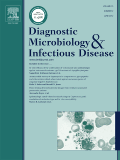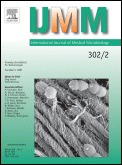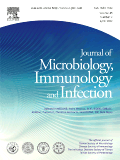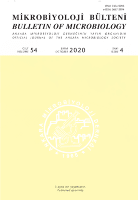
DIAGNOSTIC MICROBIOLOGY AND INFECTIOUS DISEASE
Scope & Guideline
Pioneering Insights for Health Challenges
Introduction
Aims and Scopes
- Diagnostic Innovations:
The journal emphasizes the development and application of novel diagnostic techniques, such as next-generation sequencing, PCR, and rapid antigen tests, to improve the accuracy and speed of infectious disease diagnosis. - Antimicrobial Resistance:
There is a strong focus on the identification and characterization of antimicrobial resistance mechanisms among various pathogens, including Gram-positive and Gram-negative bacteria, which is crucial for effective treatment and infection control. - Clinical Case Studies:
The journal frequently features clinical case reports that illustrate unique or challenging cases of infectious diseases, contributing to the understanding of disease presentation, diagnosis, and management. - Public Health Implications:
Research published often has implications for public health, particularly in understanding the epidemiology of infections, the impact of diagnostic methods on patient outcomes, and the management of infectious disease outbreaks. - Pathogen Identification and Characterization:
The journal covers studies that focus on the identification and characterization of various pathogens, including bacteria, viruses, fungi, and parasites, enhancing the understanding of their roles in infectious diseases.
Trending and Emerging
- Molecular Diagnostics:
There is a significant increase in research involving molecular diagnostic techniques such as PCR, NGS, and CRISPR-based methods, which are becoming essential tools in rapid pathogen identification and resistance detection. - COVID-19 Related Studies:
Given the ongoing pandemic, studies focusing on SARS-CoV-2 diagnostics, including serological assays and rapid testing methods, have surged, highlighting the importance of timely and accurate detection in managing the disease. - Antimicrobial Stewardship:
Research addressing antimicrobial stewardship practices, including the role of rapid diagnostics in guiding appropriate antibiotic use and reducing resistance, is increasingly prevalent. - Point-of-Care Testing:
There is a growing emphasis on point-of-care testing innovations, reflecting the need for rapid and accessible diagnostics in various healthcare settings, especially in resource-limited environments. - Artificial Intelligence and Machine Learning Applications:
Emerging studies are exploring the integration of AI and machine learning in diagnostics to enhance predictive modeling and improve diagnostic accuracy.
Declining or Waning
- Traditional Culture Methods:
There is a noticeable decline in studies focused solely on traditional microbial culture techniques, as newer molecular and rapid diagnostic methods gain precedence in the field. - Invasive Procedures for Diagnosis:
Research involving invasive diagnostic procedures, such as biopsies and surgical interventions for pathogen identification, has seen a reduction, likely due to the rise of less invasive molecular techniques. - Narrow-Spectrum Antibiotics Studies:
Papers focusing on the efficacy of narrow-spectrum antibiotics are becoming less frequent, possibly overshadowed by discussions surrounding broad-spectrum agents and the ongoing concerns over antimicrobial resistance.
Similar Journals

ENFERMEDADES INFECCIOSAS Y MICROBIOLOGIA CLINICA
Connecting research and clinical insights in infectious disease management.ENFERMEDADES INFECCIOSAS Y MICROBIOLOGIA CLINICA is a prominent journal dedicated to the fields of infectious diseases and clinical microbiology, published by EDICIONES DOYMA S A in Spain. With an ISSN of 0213-005X and an e-ISSN of 1578-1852, the journal has been a cornerstone of research and scholarly communication since its inception in 1989. As of 2023, it holds a Q3 category ranking in Infectious Diseases, highlighting its significance in the field, alongside a Q4 ranking in the related area of Microbiology. Although the journal is not open access, it remains an essential resource for professionals, researchers, and students aiming to stay informed on advancements and studies that impact clinical practices in infectious diseases. With Scopus ranks indicating a percentile ranking in the 20th to 34th range across various sub-disciplines, ENFERMEDADES INFECCIOSAS Y MICROBIOLOGIA CLINICA continually contributes to the dialogue and development of science, fostering a deeper understanding of complex microbial interactions and disease mechanisms.

INTERNATIONAL JOURNAL OF MEDICAL MICROBIOLOGY
Bridging Microbiology and Clinical ExcellenceWelcome to the International Journal of Medical Microbiology, a leading publication in the field of microbiological research and infectious diseases, offered by Elsevier GmbH. Established in 2000, this esteemed journal provides a scholarly platform for the presentation of high-quality research, reviews, and innovations that bridge medical microbiology and clinical applications. With an impressive impact factor positioning it within the Q1 category across multiple disciplines, including Infectious Diseases, Microbiology, and Medicine, the journal is recognized for its rigorous peer-review process and significant contributions to advancing our understanding of microbial pathogenesis, diagnostics, and therapeutics. The International Journal of Medical Microbiology is committed to open access, promoting the dissemination of knowledge and accessibility for researchers, professionals, and students worldwide. Based in Munich, Germany, the journal continues to play a vital role in the global scientific community, fostering collaborations and inspiring future innovations in the fight against infectious diseases.

EPIDEMIOLOGIE MIKROBIOLOGIE IMUNOLOGIE
Fostering Insights into Infectious DiseasesEPIDEMIOLOGIE MIKROBIOLOGIE IMUNOLOGIE is a prominent scholarly journal published by CESKA LEKARSKA SPOLECNOST J EV PURKYNE in the Czech Republic. With an ISSN of 1210-7913, this journal has been at the forefront of research since its inception in 1994, showcasing a rich repository of studies bridging the domains of epidemiology, microbiology, immunology, and infectious diseases, and reflecting advancements over three decades. Although it currently falls within the Q4 category in multiple fields including Epidemiology and Microbiology, the journal serves an essential role in disseminating knowledge and fostering discussions around public health challenges. The contributions made through its pages are vital for researchers, healthcare professionals, and students aiming to enhance their understanding of complex biomedical issues. While it does not offer open access, the journal remains a critical resource in its niches, inviting readers to engage with the latest findings and methodologies reshaping the landscape of health science.

JOURNAL OF MICROBIOLOGY IMMUNOLOGY AND INFECTION
Unlocking the mysteries of infection and immunity.Welcome to the Journal of Microbiology Immunology and Infection, a premier academic publication established in 1998 and now proudly owned by Elsevier Taiwan. As an Open Access journal since 2016, it provides unrestricted access to groundbreaking research in the fields of immunology, microbiology, and infectious diseases, making it an essential resource for researchers, practitioners, and students alike. The journal holds impressive rankings, including Q1 status in categories such as Infectious Diseases and Microbiology (medical), and a notable 92nd percentile in its Scopus ranking for Medicine - Infectious Diseases. With a dedicated focus on advancing knowledge and fostering collaboration within the scientific community, the Journal of Microbiology Immunology and Infection is committed to publishing high-impact research that significantly influences practice and policy in healthcare and life sciences. The journal is also recognized for its contribution to the ongoing dialogue surrounding contemporary issues in immunology and infection, positioning it as a vital platform for scholarly exchange and innovation.

MIKROBIYOLOJI BULTENI
Exploring Innovations in Infectious Disease ResearchMIKROBIYOLOJI BULTENI, with ISSN 0374-9096, is a prestigious academic journal published by the ANKARA MICROBIOLOGY SOC, located in Ankara, Turkey. Established in 1973, this journal has been a vital conduit for disseminating research in the fields of Immunology, Microbiology, and Infectious Diseases, garnering a reputation as a significant contributor to the scientific community. The journal is currently ranked in the Q3 category within Immunology and Microbiology (miscellaneous), and Infectious Diseases, indicating its impactful presence amidst contemporary research. With access options that may be restricted, MIKROBIYOLOJI BULTENI actively welcomes submissions that advance the understanding of critical microbiological principles and practices, thereby supporting both national and international research efforts. Researchers, professionals, and students are encouraged to explore the latest findings shared in this journal, as it continually shapes the landscape of microbiology and infectious disease studies through its comprehensive and rigorous peer-reviewed publications.

MEDICAL MICROBIOLOGY AND IMMUNOLOGY
Advancing knowledge at the intersection of microbes and immunity.Medical Microbiology and Immunology is a renowned journal published by Springer, serving as a pivotal resource in the fields of microbiology and immunology. Established in 1971 and continuing its legacy through 2024, this journal features cutting-edge research and reviews that address critical advancements and challenges within these dynamic fields. With an impressive impact factor and a robust ranking, including Q1 categories in both Microbiology (medical) and Immunology, it stands at the forefront of scholarly communication, ranking 21st out of 140 in the realm of Medical Microbiology. Researchers and professionals are encouraged to explore a variety of studies that delve into the interactions between microorganisms and the immune system, making it an essential resource for anyone fascinated by these interconnected realms of health sciences. Although not open access, the journal is widely accessible through institutional libraries, ensuring that significant findings reach a global audience. The University of New York Plaza serves as its operational hub in the USA, reinforcing its international influence and dedication to advancing knowledge in microbiology and immunology.

GERMS
Uncovering breakthroughs in microbiology and immunology.GERMS is a multidisciplinary journal published by the EUROPEAN ACAD HIV-AIDS & INFECTIOUS DISEASES, dedicated to advancing knowledge in the fields of epidemiology, immunology, infectious diseases, and microbiology. Since its inception in 2011, the journal has provided a crucial platform for researchers and practitioners to share innovative studies, clinical findings, and public health insights, with an eye on improving health outcomes globally. With an ISSN of 2248-2997 and a consistent publication trajectory leading up to 2024, GERMS is recognized in the third quartile across several categories, reflecting its growing impact and relevance in the scientific community. Authors and readers benefit from a range of access options, fostering the dissemination of vital research findings. As a journal situated in Romania, it also addresses regional health challenges while contributing to the broader discourse on infectious diseases and public health. GERMS is not just a repository of knowledge, but a vital resource for those engaged in combating infectious diseases and promoting health equity.

CLINICAL MICROBIOLOGY AND INFECTION
Navigating the Frontiers of Microbial HealthCLINICAL MICROBIOLOGY AND INFECTION is a leading journal published by Elsevier Science Ltd, dedicated to advancing the field of infectious diseases and clinical microbiology. With its ISSN 1198-743X and E-ISSN 1469-0691, this esteemed journal has maintained its influential presence since 1995, showcasing high-impact research that addresses critical issues in the diagnosis, treatment, and prevention of infections. Ranked in the Q1 quartile for Infectious Diseases, Medicine (miscellaneous), and Microbiology (medical) categories, and boasting impressive Scopus rankings of #12 and #7 respectively, it sits at the forefront of scientific inquiry in these disciplines. Although it is not an Open Access journal, it provides comprehensive access options for institutions and individuals, ensuring the dissemination of vital research findings. As the field of clinical microbiology continues to evolve, CLINICAL MICROBIOLOGY AND INFECTION remains an essential resource for researchers, clinicians, and students aiming to stay informed on the latest developments and breakthroughs in understanding infectious diseases.

Infectious Diseases and Clinical Microbiology
Bridging research and clinical practice in infectious health.Infectious Diseases and Clinical Microbiology is a pivotal journal dedicated to advancing our understanding of infectious diseases through rigorous scientific research and clinical practices. Published by DOC DESIGN INFORMATICS CO LTD, this journal serves as a vital platform for researchers, healthcare professionals, and students keen on enhancing their knowledge of microbiological sciences and the clinical implications of infectious agents. With an ISSN of 2667-646X, it aims to disseminate significant findings in the field, enriching the scholarly dialogue surrounding infectious diseases. While currently operating under a traditional access model, the journal encourages global collaboration and knowledge sharing, striving to make a meaningful impact in tackling the challenges posed by infectious diseases. Its content aims to bridge the gap between laboratory research and clinical application, making it an essential resource in the contemporary landscape of global health.

MICROBIAL PATHOGENESIS
Transforming Understanding into Therapeutic StrategiesMICROBIAL PATHOGENESIS, published by Academic Press Ltd - Elsevier Science Ltd, is a prominent journal in the fields of Infectious Diseases and Microbiology, with a notable impact factor and classified in the Q2 quartile for both categories as of 2023. Since its inception in 1986, this journal has provided a platform for the dissemination of cutting-edge research that enhances our understanding of microbial infections and their implications in health and disease. The journal is indexed in Scopus, ranking #80 among 344 in Infectious Diseases and #57 among 182 in Microbiology, underscoring its significant contribution to the scientific community. Although it operates under a traditional subscription model, the content is vital for researchers, professionals, and students focused on the dynamics of microbial pathogenesis and the development of innovative therapeutic strategies. The journal's comprehensive scope aims to foster advancements in this critical area of study, bridging the gap between laboratory research and clinical applications.